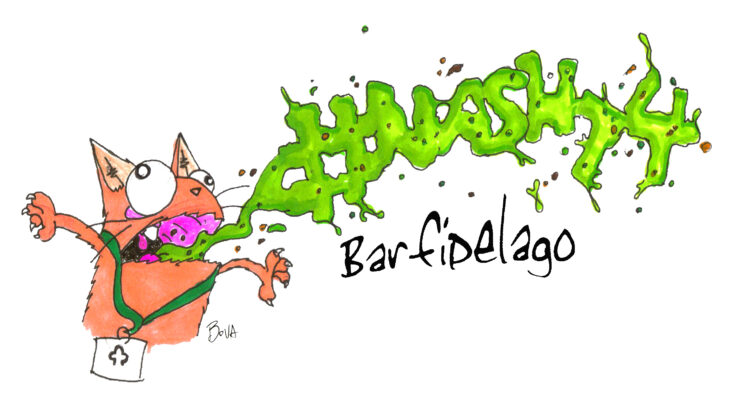How social media can become a tool to land you a job, not lose one
Photo by Marta Kierkus
We hear it every day: This is not a good time to be looking for a job. An epidemic of unemployment and underemployment has been on the rise for years, and students in particular are feeling the pinch. With so many veterans of numerous industries suddenly finding themselves jobless, competition for the few jobs that are available when we graduate is all the more rigorous.
It’s already difficult to enter the workforce as a student with little relevant job experience, but it’s even harder now that you have to compete for an “entry-level” job against someone who’s been working in the field for 10 years and has six professional references to your… none.
How can we win this game when we’re at such a clear disadvantage?
There’s only so much advice any one person can offer to a student body as large as the University of Ottawa. We’re all in different programs with different aspirations, and every industry is different. But there’s one unique advantage most of us have as millennials that gives us an advantage over the more experienced competition: We grew up with the Internet.
What employers want
You may already be vaguely aware of your mastery over the World Wide Web, as does anyone who has tried to explain Facebook or Twitter to their parents. Whether we like it or not, the age we live in demands us to be all over it. But we’re not always benefitting from it as much as we could be.
For a project in a 2012 communications research methods class, I conducted a study about hiring methods in the communications industry. After interviewing a group of hiring managers, I came away with some insights that can be applied to a wider sphere—and a few years down the line, I was surprised by how well they worked.
Those hiring managers had a lot of techniques in common, but there were a couple things in particular they unanimously agreed upon. They wanted two things out of their candidates:
They want to know who you are, not just the skills you have. Employers don’t just hire based on skills. Those can be taught or outsourced. How well you’re going to fit in with their existing team matters just as much. Your skills and qualifications might unlock the door, but it has to be you that walks through it.
They want someone who’s reliable. For the interviewees, this translated to something called “proven ability”—proof that you’re capable of doing the job, being independent and accountable, and acting with integrity.
If you don’t have much job experience, the proven ability part may seem difficult. But the Internet can help you work around it. The trick is just to be there.
Changing the social media paradigm
There’s been a lot of talk and a lot of advice, particularly for students and young people, about how to prevent social media from ruining your career, but not quite as much for how it can help you build one. Parents, teachers, and others are constantly telling us, “Be careful what you post because your employer might see it.”
What they should be telling you is that what you post can also give you a competitive advantage.
According to a 2012 survey by Jobvite, a recruitment software development company based in the United States, 92 per cent of employers use or planned to use social media for recruitment. Perhaps more importantly, 73 per cent of the 1,000 recruiters surveyed said they look up candidates’ social media profiles, even when they aren’t provided to them. The study found that 93 per cent of recruiters use LinkedIn to find talent, 66 per cent use Facebook, and 54 per cent use Twitter.
It’s simply not realistic for students today to think their online presence won’t affect their future career in one way or another.
When I was studying hiring methods, one of my interviewees told me her first place to look for more information about job candidates is LinkedIn, to see who they know, where they’ve worked, and what people have said about them. Essentially, this is where employers are going to find out who you are.
In a contribution to Forbes, career advisor Alison Cheston said LinkedIn is “pretty much ground zero for discovering your right career” and for making a specific job inquiry. Cheston spoke with recruiters and career search firms who stressed the importance of a broader professional social media presence.
Michelle Kedem, a partner at the recruitment firm On-Ramps, told Cheston that having a well-maintained LinkedIn profile allows potential employees to be sought out by employers, rather than constantly having to try to sell themselves.
With nothing more than a Google search, an employer can find out about your relevant work history, saving you the effort of trying to say everything on a resumé or in an interview.
According to Kedem, “for any job that has an interpersonal component and/or is client-facing,” meaning the employee and customer maintain a one-on-one relationship, “a LinkedIn profile is a must.”
There’s a good chance your future employers will be looking you up, so instead of hiding all traces of yourself, make sure there’s something—and something good—to see.
Get active
It doesn’t matter what industry you’re in, the advice is the same: Get out there, be obvious, and be active. Make a Twitter account, use your real name, and start following everyone you can find who’s related to your industry. Find articles and information about your interests and industry. Retweet them. Make your own content and put it out there, even if nobody’s reading.
Tweet at your professors, at influential people in your industry, at random people in the hashtag streams. The same goes for blogs. Are you any good at writing? Are you mediocre at writing but have a friend who can edit your work? Start a blog. Write about anything. Write about what you learned in class, write about your interests, write about your class projects, post your essays, post your studies, post your homework.
LinkedIn? Same deal. Put up a resumé and do your best to make it flawless. Put up anything you can think of that makes you look impressive.
The truth is that even if no one’s looking at all of this right now, someday they will be. Link all these projects and presences together and you’ll make one big, cohesive online identity of you. “Brand yourself,” as the catchphrase goes. In the process, you’ll also have developed some of the experience employers are looking for.
When your potential employer Googles you someday, what do you want them to see: a locked-down Facebook profile with nothing but your name, or a picture of a dedicated young professional who’s active, engaged, and enthusiastic? One who might not have much in the way of traditional work experience, but who has an online presence full of thoughts and projects about their education and progress? You may not have that element of proven reliability, but the Internet is the perfect platform to build a diverse and relevant portfolio of projects and ideas you’ve been working on.
Separating your private and public online presence
There are some very obvious caveats to this advice. We’ve all heard horror stories of people who have lost a lot through online mistakes—or we’ve seen the screenshots on comedy websites. One of the most preventable disasters was that of a girl who posted a long (and poorly written) Facebook status about how much she hated her job and her boss, apparently forgetting that she had added that same boss as a Facebook friend and he had full access to her status updates. She did not keep the job.
According to the Jobvite survey, posts on Twitter referencing drugs were likely to be viewed negatively by 78 per cent of recruiters; sex, 67 per cent; and alcohol, 47 per cent.
Much like you don’t want your grandma to see the embarrassing pictures of your birthday at the bar last year, there are some things your potential employers do not need to know about you.
That’s where a professional social media presence comes in. Don’t post anything on your public profile that you wouldn’t talk to a boss or a colleague about in person. Keep your personal life for your personal accounts, and bump up the privacy.
Most people should know better than to post embarrassing, accusatory, or inflammatory statements about their employer, or photos of themselves in particularly not-safe-for-work settings, where their employer is sure to see it. But almost as important is putting the same time and energy into your professional presence as you are into your personal one.
If you’re going to make a business social media account, keep it moving. Don’t just make it and leave it blank, or hardly ever update it. Even if it’s only a short post every week or two, maintain your presence. An account that hasn’t been updated in six months looks unattended, and won’t impress anyone.
Similarly, take time to reread your writing before posting online. The Jobvite survey also found that 54 per cent of recruiters had a negative reaction to grammar and spelling mistakes.
My own success story
I’m still a student at the University of Ottawa, and my own career hasn’t quite yet begun. But last summer I experienced first-hand the way social media can open up opportunities.
It started off with a blog post I wrote about the great experience I had with the U of O’s co-op program. I posted it, then tweeted it, and tagged the co-op office’s Twitter account. Within minutes, they retweeted it. By the end of the day, that blog post had more than 70 views, to the usual three or four. Within a few hours, I got an email from the co-op office asking if they could feature it on their website. It’s also been turned into an article for the university’s online newspaper, the Gazette.
It’s a relatively minor success story, but it really was an eye-opening moment. It’s easy for employers and universities to acknowledge your successes and achievements, but you have to be the one to put those accomplishments out there, whether it be your co-op experience, work or volunteer history, or just some cool video you made with your friends. They can all help land you a job someday.
Employers want to know who you are, so show them. Just make sure you’re showing the right features. The Internet can be your enemy or your friend. My advice? Make it the latter.





